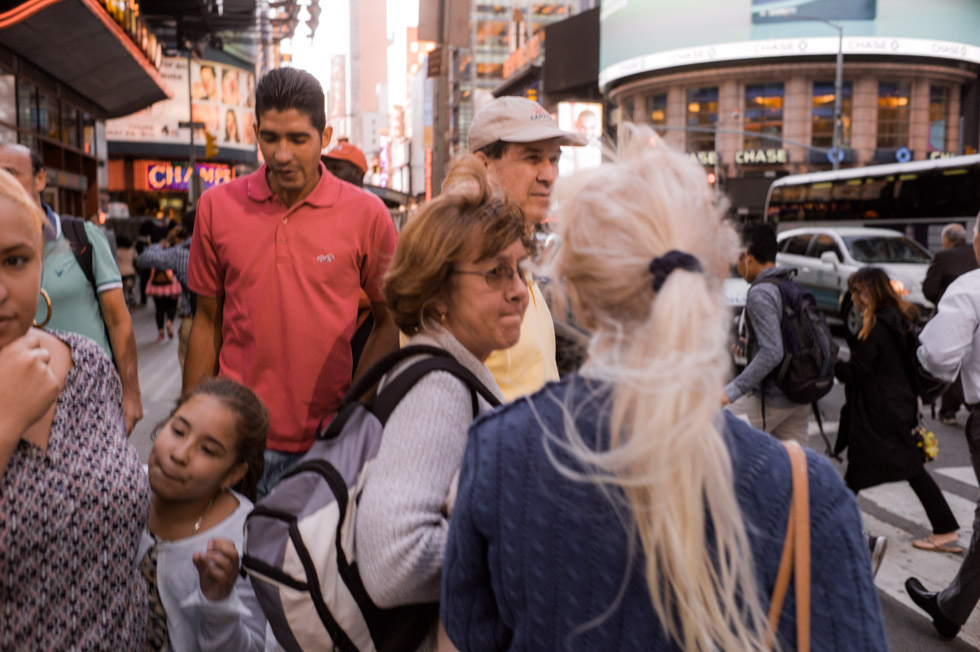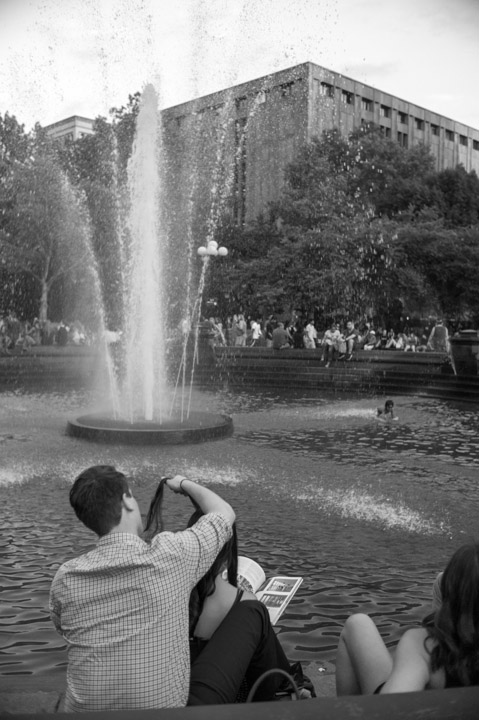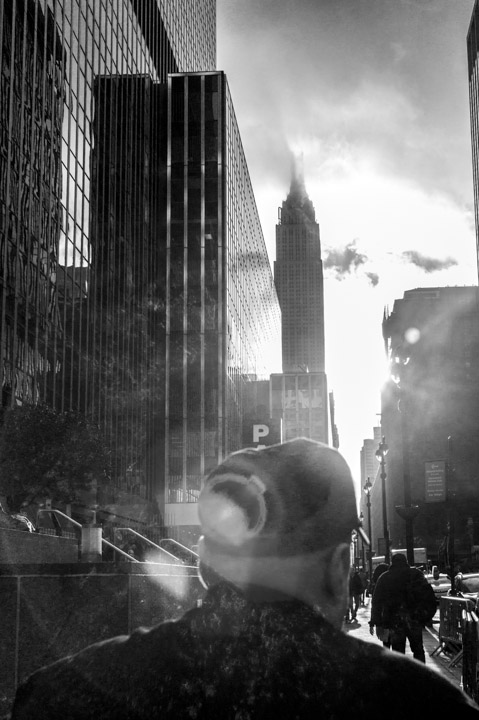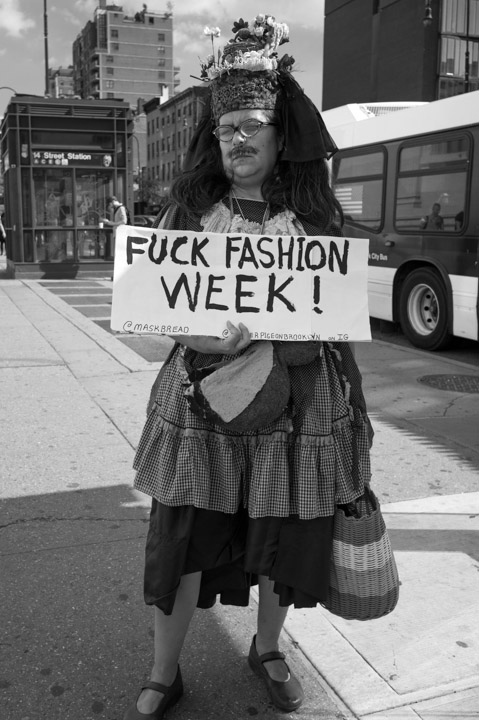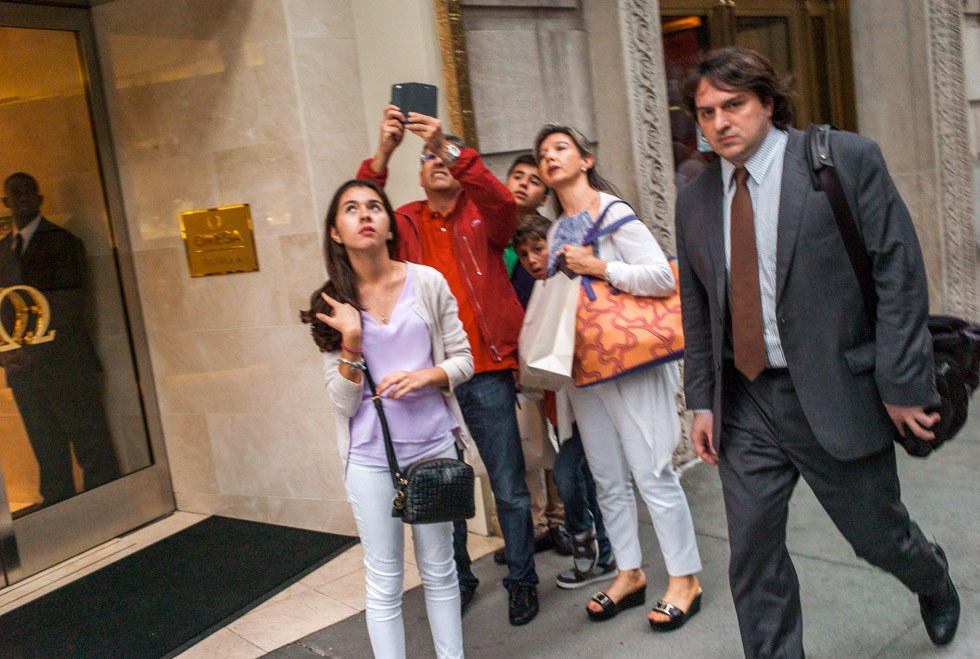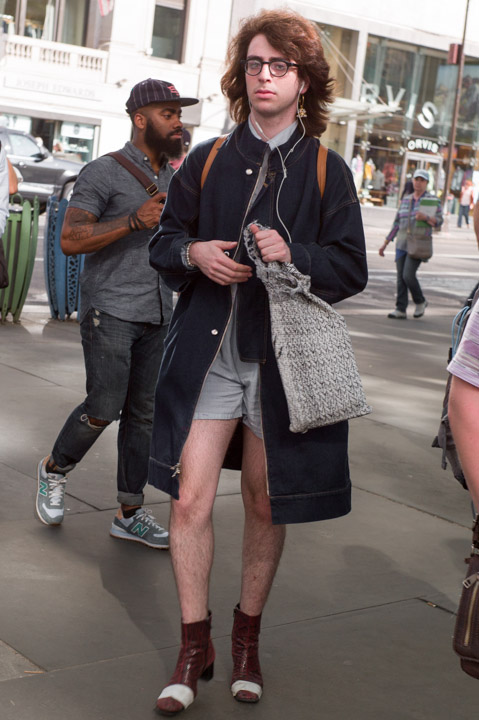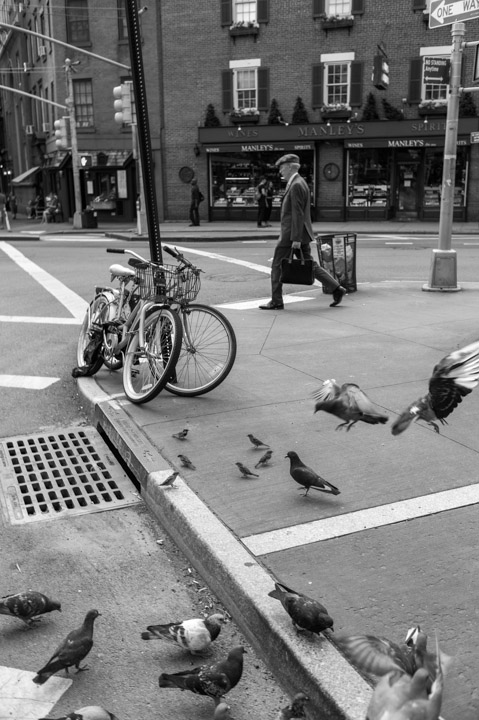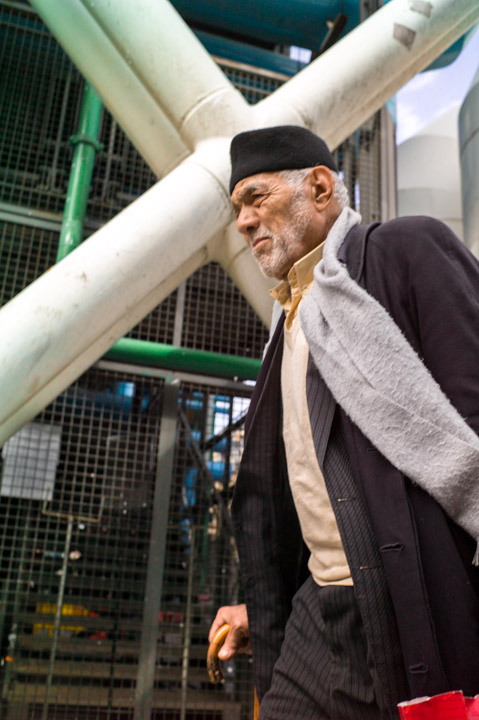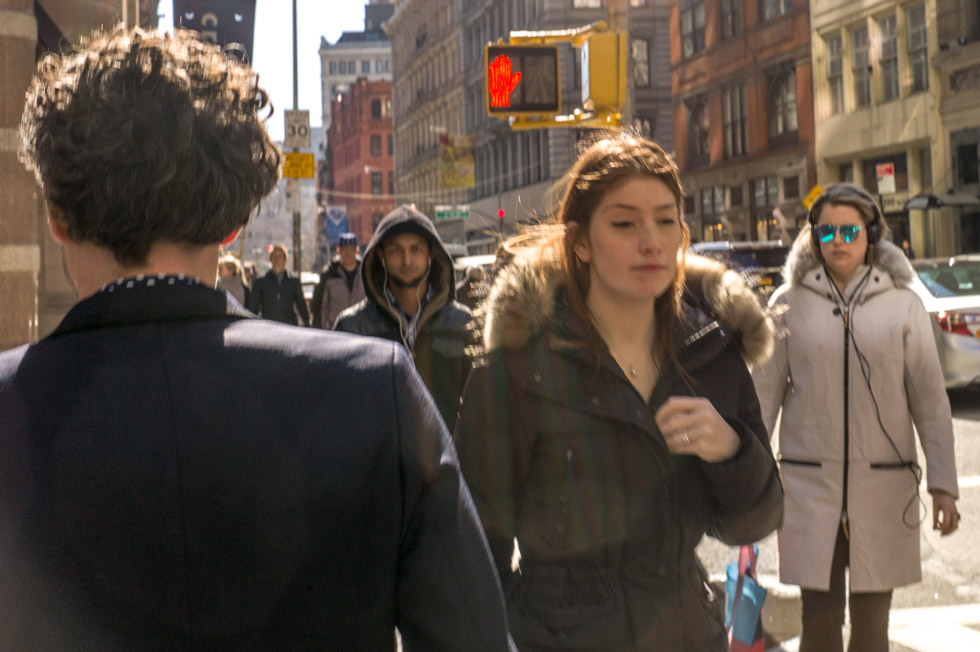
Simon Griffee
Department of graphic design, art direction, and photography.
September 2016
Learning to Program in Python
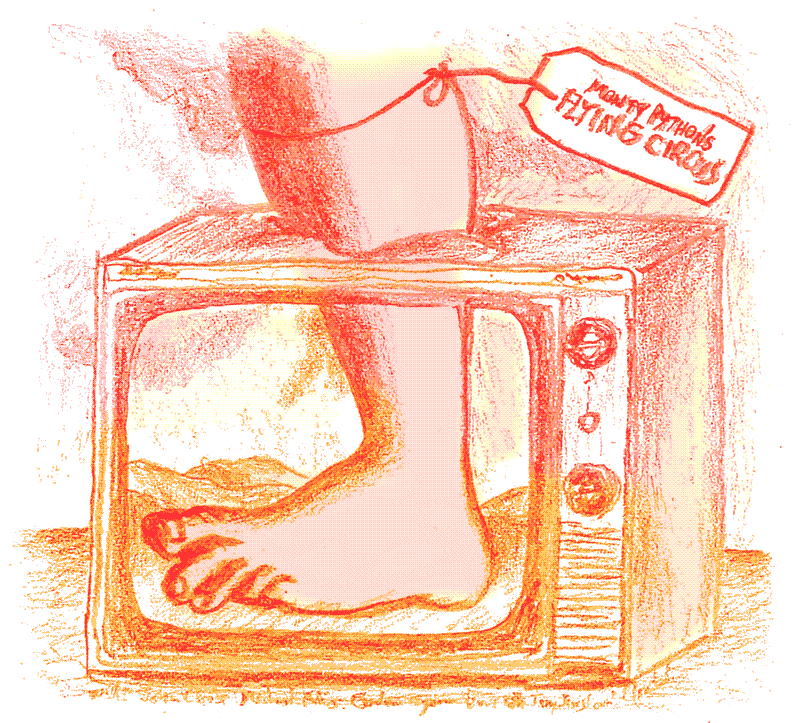
A friend with no programming experience asked how to learn to program a computer using the Python language, so I wrote this list:
- Read What is Code.
- Download and install a nice free and open source text editor.
- Try these tutorials aimed at new coders. You can also try an interactive tutorial directly in the browser.
- Dig in by working on a personal project. Making a website about something that is meaningful to you is a good choice. Django is a web framework — a set of programming patterns to make websites — written in Python. It is one of the best ones, with plenty of good tutorials.
- Read Pragmatic Thinking and Learning and keep practicing the fundamentals.
Remember the Zen of Python:
Beautiful is better than ugly.
Explicit is better than implicit.
Simple is better than complex.
Complex is better than complicated.
Flat is better than nested.
Sparse is better than dense.
Readability counts.
Special cases aren’t special enough to break the rules.
Although practicality beats purity.
Errors should never pass silently.
Unless explicitly silenced.
In the face of ambiguity, refuse the temptation to guess.
There should be one– and preferably only one –obvious way to do it.
Although that way may not be obvious at first unless you’re Dutch.
Now is better than never.
Although never is often better than right now.
If the implementation is hard to explain, it’s a bad idea.
If the implementation is easy to explain, it may be a good idea.
Namespaces are one honking great idea – let’s do more of those!
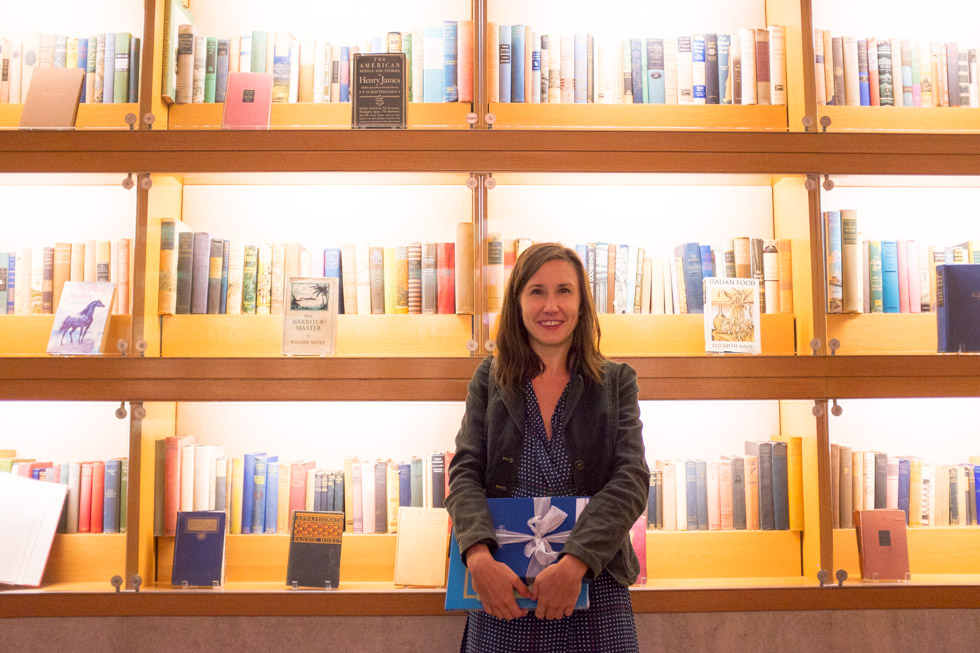
Women’s Forum Education Fund 2016 Fellow Amber Paulen at Penguin Random House Publishers, New York City, September 2016
- Learning How to Learn #
-
Also available in Portuguese (Português), Spanish (Español) and Chinese (中国).
- Pope John Paul II Lying on the Ground After Being Struck by a Meteorite #
-
I like this one better than the golden toilet.
Quote of the Week: Proust on Discovery
The real voyage of discovery consists not in seeking new landscapes, but in having new eyes.
- Love is Wise #
-
Hatred is foolish.
- Job Search, Career Advice and Graduate School Preparation Articles by Donald Asher #
-
Invaluable for both students and midlife career changers. Be sure to watch one of his presentations, too.
Books Read in Rough Chronological Order
A list of books, stories and essays I have read made from memory in rough chronological order. Also: books that have been particularly helpful.
- All Fours by Miranda July.
- Creativity: A Short and Cheerful Guide by John Cleese. See also this talk.
- Replay: Memoir of an Uprooted Family by Jordan Mechner
- Color by Garry Winogrand, edited by Michael Almereyda and Susan Kismaric.
- Debugging Teams by Brian W. Fitzpatrick and Ben Collins-Sussman.
- Lying by Sam Harris and Annaka Harris.
- The Creative Act by Rick Rubin.
- The Mysteries by Bill Watterson and John Kascht
- The Making of Prince of Persia by Jordan Mechner
- Meditations by Marcus Aurelius
- Arcade Game Typography by Toshi Omagari. Designed by Darren Wall and Leo Field.
- Drawing on the Dominant Eye by Betty Edwards
- Use of Weapons by Iain M. Banks
- Braiding Sweetgrass by Robin Wall Kimmerer
- Make Something Wonderful - Steve Jobs in his own words
- Humankind: A Hopeful History by Rutger Bregman
- The First Protectors by Victor Godinez
- The Medium is the Massage - An Inventory of Effects
by Marshall McLuhan & Quentin Fiore - A Village Life by Louise Glück
- Art & Fear by David Bayles & Ted Orland
- The War of Art by Steven Pressfield
- Cats, Cats, Cats from Andy Warhol
- To Fly and Fight by Clarence E. “Bud” Anderson
- Valparaiso by Sergio Larrain and Pablo Neruda
- Sergio Larrain by Sergio Larrain and Agnès Sire
- The Summer Book by Tove Jansson
- Pen and Ink Drawing: A Simple Guide by Alphonso Dunn
- Bill Peet: An Autobiography by Bill Peet
- The Illusion of Life: Disney Animation by Ollie Johnston and Frank Thomas
- Figure Drawing: For All It’s Worth by Andrew Loomis
- Keep Your Airspeed Up by Harold H. Brown
- Jagged Alliance 2 by Darius Kazemi
- The Player of Games by Iain M. Banks
- Diane Arbus: Revelations by Diane Arbus
- Going Solo by Roald Dahl
- We Should All Be Feminists by Chimamanda Ngozi Adichie
- In the Picture: Self-Portraits 1958-2011 by Lee Friedlander
- Bad Weather by Martin Parr
- Self Portrait by Lee Friedlander
- The Last Resort by Martin Parr
- Krishnamurti to Himself: His Last Journal by Jiddu Krishnamurti
- The Dry Heart by Natalia Ginzburg
- Sapiens: A Brief History of Humankind by Yuval Noah Harari
- Do Androids Dream of Electric Sheep? by Philip K. Dick
- Listen to the Trees by John Sexton
- La Comète - Le Voyage de Rosetta by Jean-Pierre Bibring and Hanns Zischler
- A Village Life by Louise Glück
- Voices From The Moon by Andrew Chaikin and Victoria Kohl
- Narcissus and Goldmund by Hermann Hesse
- Leonardo da Vinci by Walter Isaacson
- I Am a Strange Loop by Douglas Hofstadter
- Pulvis Et Umbra by Robert Louis Stevenson
- The Dispossessed by Ursula K. Le Guin
- Invisible Cities by Italo Calvino
- The Ones Who Walk Away from Omelas by Ursula K. Le Guin
- Life is Good & Good for You in New York: Trance Witness Revels by William Klein
- Lost and Found by Bruce Gilden
- Tao Te Ching by Lao Tsu (translation by Gia-Fu Feng and Jane English)
- Frankenstein: The 1818 Text by Mary Shelley
- The Demon-Haunted World: Science as a Candle in the Dark by Carl Sagan
- Teenage Lust by Larry Clark
- Thank You by Robert Frank
- Wall by Josef Koudelka
- Exiles by Josef Koudelka
- William Eggleston’s Guide by William Eggleston
- Boyhood Photos of J.H. Lartigue by J.H. Lartigue
- Mode In & Out by William Klein
- The Animals by Garry Winogrand
- Public Relations by Garry Winogrand
- Women Are Beautiful by Garry Winogrand and Helen Gary Bishop
- Killing Floor by Lee Child
- Nicaragua by Susan Meiselas
- What I Talk About When I Talk About Running by Haruki Murakami
- Turtles, Termites and Traffic Jams by Mitchel Resnick
- The Hand by Frank R. Wilson
- What Is Code by Paul Ford
- Beautiful Evidence by Edward Tufte
- The Psychopath Code by Pieter Hintjens
- Hold Still by Sally Mann
- The Catcher In The Rye by J. D. Salinger
- Slaughterhouse Five by Kurt Vonnegut
- Coney Island by Bruce Gilden
- Yoga For People Who Can’t Be Bothered To Do It by Geoff Dyer
- Art is Work by Milton Glaser
- Consider Phlebas by Iain M. Banks
- Drawing is Thinking by Milton Glaser
- The Solitude of Ravens by Masahisa Fukase
- Norwegian Wood by Haruki Murakami
- Wind, Sand, Stars by Antoine de Saint-Exupéry
- Search Inside Yourself by Chade-Meng Tan
- Designing Interfaces by Jenifer Tidwell
- Planet Google by Randall Stross
- Camera Lucida by Roland Barthes
- Zona by Geoff Dyer
- Vivian Maier: Street Photographer by Vivian Maier and John Maloof
- The Ongoing Moment by Geoff Dyer
- Colorless Tsukuru Tazaki and His Years of Pilgrimage by Haruki Murakami
- Another Great Day At Sea by Geoff Dyer
- Helen Levitt by Helen Levitt
- A Child’s Garden of Verses by Robert Louis Stevenson
- Magnum Contact Sheets
- Ready Player One by Ernest Cline
- A Hanging by George Orwell
- Politics and the English Language by George Orwell
- Such, Such Were the Joys by George Orwell
- Harry Gruyaert by Harry Gruyaert
- The Story of Art by Ernst Gombrich
- The Last Question by Isaac Asimov
- Roadside Picnic by Arkady and Boris Strugatsky
- Drawing on the Right Side of the Brain by Betty Edwards
- The Dragons of Eden by Carl Sagan
- Cosmos by Carl Sagan
- American Photographs by Walker Evans
- The Americans by Robert Frank
- Star Maker by Olaf Stapledon
- The Alchemist by Paulo Coelho
- Earthlings by Richard Kalvar
- Pragmatic Thinking And Learning by Andy Hunt
- Lisette Model by Lisette Model
- On Being a Photographer by David Hurn and Bill Jay
- The Ice Palace by Tarjei Vesaas
- The Wind-Up Bird Chronicle by Haruki Murakami
- Zen in the Art of Archery by Eugen Herrigel
- French Kiss by Anders Petersen
- Café Lehmitz by Anders Petersen
- A Beautiful Catastrophe by Bruce Gilden
- Gypsies by Josef Koudelka
- The Death and Life of Great American Cities by Jane Jacobs
- Siddhartha by Hermann Hesse
- Workers by Sebastião Salgado
- Anna Karenina by Leo Tolstoy
- Cat’s Cradle by Kurt Vonnegut
- The Sorrow of War by Bảo Ninh
- Letters to a Young Poet by Rainer Maria Rilke
- The Sirens of Titan by Kurt Vonnegut
- The First and Last Freedom by Jiddu Krishnamurti
- Think On These Things by Jiddu Krishnamurti
- Ansel Adams: An Autobiography by Ansel Adams and Mary Street Alinder
- The Design of Everyday Things by Don Norman
- The Unbearable Lightness of Being by Milan Kundera
- Black Spring by Henry Miller
- Tropic of Cancer by Henry Miller
- Don’t Make Me Think by Steve Krug
- DOM Scripting by Jeremy Keith
- Bulletproof Web Design by Dan Cederholm
- Designing With Web Standards by Jeffrey Zeldman
- The Lord of The Rings (The Fellowship of the Ring, The Two Towers, The Return of the King) by J.R.R. Tolkien
- The Cluetrain Manifesto by Christopher Locke, David “Doc” Searls, David Weinberger & Rick Levine
- Envisioning Information by Edward Tufte
- The Elements of Typographic Style by Robert Bringhurst
- Graphic Design by Milton Glaser
- 1984 by George Orwell
- A Brief History of Time by Stephen Hawking
- The Psychiatrist by Machado de Assis
- The Great Gatsby by F. Scott Fitzgerald
- The Bourne Supremacy by Robert Ludlum
- The Bourne Identity by Robert Ludlum
- Various Dirk Pitt adventure novels by Clive Cussler
- The House of the Spirits by Isabel Allende
- Yeager: An Autobiography by Charles Elwood “Chuck” Yeager
- Journals by Kurt Cobain
- Wuthering Heights by Emily Brontë
- Macbeth by William Shakespeare
- Romeo and Juliet by William Shakespeare
- Chickenhawk by Robert Mason
- Ender’s Game by Orson Scott Card
- The World of Henri Cartier-Bresson by Henri Cartier-Bresson
- The First Thousand Words by Heather Amery and Stephen Cartwright
- The Tale of Peter Rabbit by Beatrix Potter
- Gnomes by Wil Huygen and illustrated by Rien Poortvliet
- STEM to STEAM #
-
Science, technology, engineering, math + art & design = STEAM. Coincidentally, Steam is also the leading computer games digital distribution platform.
- Fighter Pilot’s Road Survival Guide #
-
A fighter pilot’s advice on road safety to cyclists and drivers.
From the comments in the HN discussion :
Tldr: if a vehicle is on a collision course with you, it will always be in the same position of your field of view, so there may not be enough apparent motion to draw your attention. To combat this, slow down a bit as you approach intersections to generate relative motion between yourself and anyone on a collision course with you. Also scan left/right twice to double your chances of seeing hazards. The brain is very good at stitching together a coherent scene as your eyes dart around, but this might hide the fact that you have blind spots where your eyes have jumped over potentially important details.
To improve your chances of being seen, turn your lights on and wear bright colors to improve contrast. Be aware that if the sun is right behind you, people ahead of you will have a very difficult time seeing you.
…
There is no such thing as peripheral vision. All you have is peripheral “awareness” at your disposal. “Vision” requires looking directly at something.



